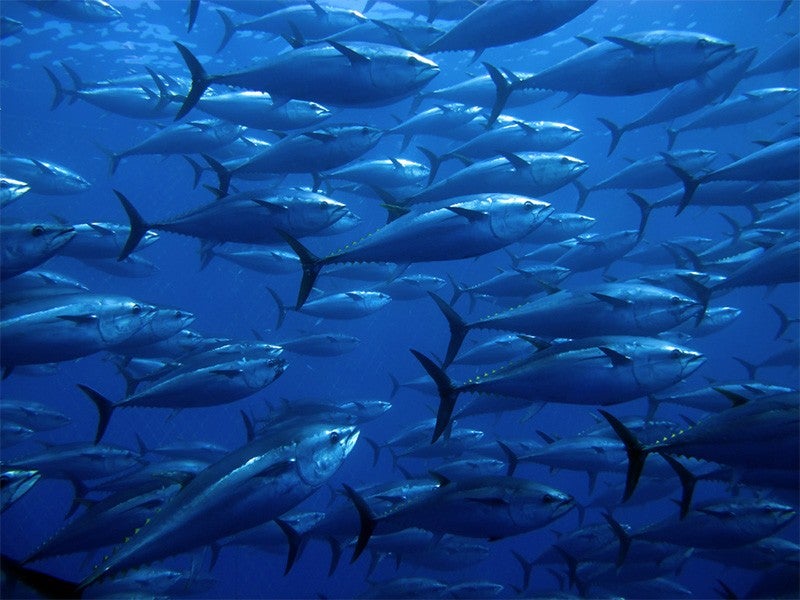World Trade Organization Is Negotiating New Agreement to Protect Our Oceans From Overfishing
Earthjustice is one of more than 160 leading environmental organizations that have signed on in support of ending unsustainable funding practices
First, the bad news: Overfishing, one of the biggest threats to our planet, is happening far away from public view, in the middle of the world’s oceans. Now, the hopeful news: This problem is preventable, and world leaders are currently negotiating a new agreement at the World Trade Organization that could change things for the better.
From now until Dec. 4, the World Trade Organization Member States are working through the language of an agreement that could prevent massive overfishing by industrial fleets that scoop up fish and other sea creatures in the world’s oceans. The goal is to complete the agreement by the end of 2020, and that is no small feat; the WTO requires 100% consensus, meaning all countries must accept the text of the agreement.
Humans have never targeted fish in those far-away areas in such an aggressive way. These fleets are taking so many fish, so fast, that fish populations have no chance to replenish themselves.
Overfishing on this scale means there’s less seafood available for the world’s people, and it means losing the rich variety of inter-dependent species that regulates our climate and keeps our oceans healthy.
So how can the World Trade Organization solve this? These industrial fishing operations are pricey endeavors because it’s expensive to travel and work so far from shore. Some governments are subsidizing these operations, and we’re all paying the environmental price.
The Pew Charitable Trusts, one of the world’s top nonprofit marine research and advocacy organizations, estimates that governments around the world spend more than $22 billion on subsidies for things like building ever-larger boats and paying for the fuel needed to go out farther, stay at sea longer, and take more fish. The countries that are members of the World Trade Organization are in a unique position to reach a deal to end these harmful subsidies. Not only does the World Trade Organization have a mandate to regulate subsidies, it also has the power to set legally binding rules to make it happen.
Earthjustice is one of more than 160 leading environmental organizations that have signed on in support of ending these unsustainable funding practices. Now it is the World Trade Organization’s turn to act. To bring our fishing levels back to healthy populations, we must end harmful fisheries subsidies that encourage overexploitation.
These fleets are making profits by destroying a renewable resource that we all depend upon for our very existence on the planet. It’s not right, and it’s time for the World Trade Organization to stop these practices
Earthjustice’s Oceans Program uses the power of the law to safeguard imperiled marine life, reform fisheries management, stop the expansion of offshore oil and gas drilling, and increase the resiliency of ocean ecosystems to climate change.
Earthjustice Media Relations Team
media@earthjustice.org
